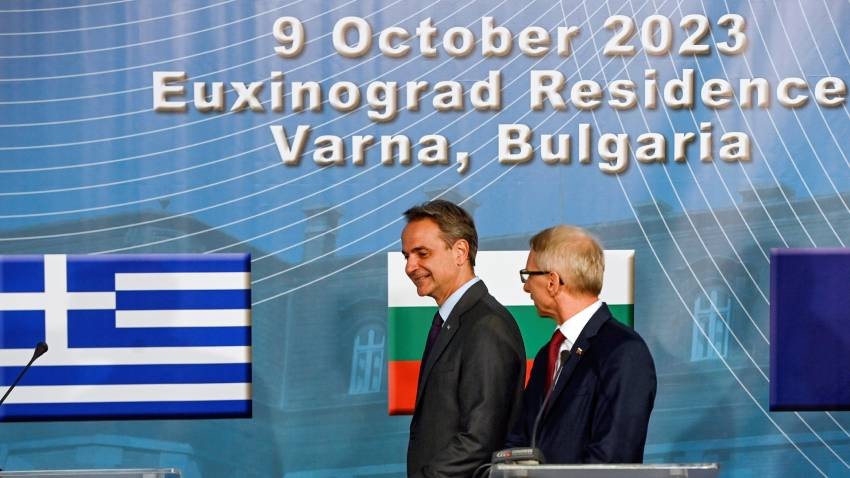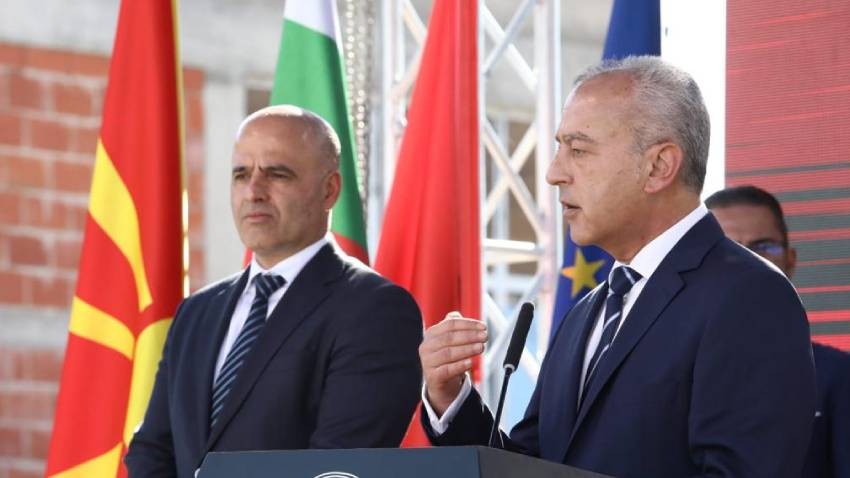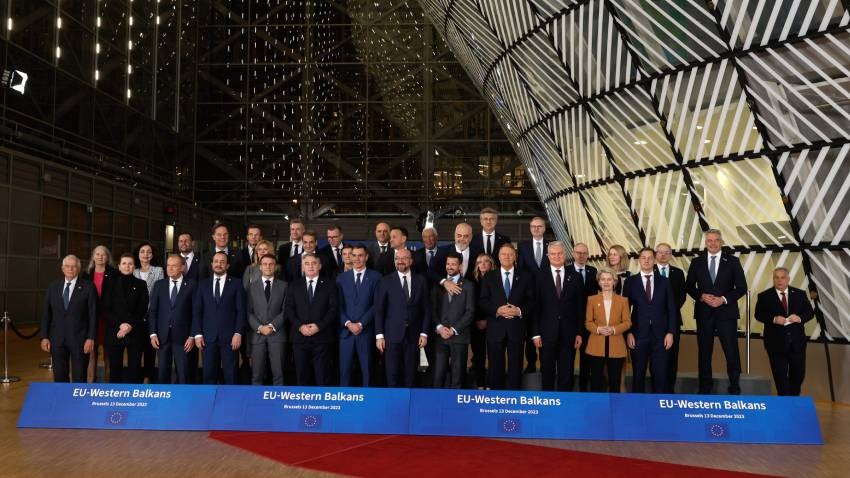In the first part of our conversation with Professor Zdravko Popov, dedicated to Bulgaria's relations with the Balkan countries in 2023, he commented on the relations between Bulgaria and its northern neighbour Romania. He mentioned the ongoing logistical problems along the border due to increased traffic as a result of Russia's aggression in Ukraine. The former career diplomat, now a lecturer at Sofia University, described Bulgarian-Turkish good neighbourliness as geopolitically predestined.
As we continue our virtual journey through the Balkans from north to south, the conversation takes us to Greece. Bulgarian-Greek relations in 2023 have been defined in both Sofia and Athens as an example of strategic partnership.
Professor Popov commented on the project under discussion between Bulgaria, Greece and Romania to build a transport corridor from Thessaloniki through the Via Egnatia and along the Black Sea to the ports of Burgas, Varna and Constanta. He disagreed with the idea that this was an unnecessary route that would render useless the part of Pan-European Corridor 8 from the Black Sea through northern Macedonia to the Albanian port of Durres.
Corridor 8 must be built because it is a very clearly structured European project. But above all, it requires cooperation between the Balkan countries involved, whose interests must really coincide. There is serious diplomatic work to be done.
From the still unfinished Corridor 8, the discussion on Bulgaria's Balkan policy reaches North Macedonia. In the words of Professor Popov, Skopje's refusal to grant constitutional recognition to the Bulgarian minority will be a serious burden for North Macedonia.
On the one hand, Skopje is getting an open door to European membership; on the other hand, we have reduced the pressure on them, insofar as some of our demands have become European accession requirements, with the intention and desire that North Macedonia should find the right way to realise its great hope of becoming an EU member state, and with that, to clear Albania's way to EU membership. Because North Macedonia's internal problems affect neighbouring Albania, the Balkans and Europe. Perhaps the patience of both Tirana and Brussels will run out at some point, and it would not be surprising if the EU changes its approach and removes Macedonia from the enlargement package of the two countries, leaving Albania to navigate the negotiation process on its own. The Macedonians need to think seriously about this. They can be stubborn towards the Bulgarian community, but this stubbornness could be a stumbling block for their future in the EU.
Comparing Serbia's and North Macedonia's paths to the EU, the analyst says that Brussels and Washington are desperately looking for a formula to speed up the integration of the Western Balkans into the EU, given the geopolitical vectors in the world, in Eastern Europe and the Middle East.
"The US has made the Balkans a priority of its foreign policy in recent years, and this has been strongly felt in our countries.
The main foreign policy interest of the United States in the Balkans is related to security. Therefore, this security issue cannot stop somewhere as a half turn, only with NATO membership. Because, yes, most of the countries, with the exception of Serbia and Bosnia, are already members of NATO. But the other part of the half-turn must also be made. That is, integration should be truly continental in all other azimuths as well.
That's why the search for a new political configuration in North Macedonia is being accelerated, which could lead the political elite in Skopje to regroup and take a faster and more business-like approach to integration".
Regardless of who is in power in Belgrade, they will have to take into account the divided Serbian society in terms of Serbia's European integration, underlines prof. Zdravko Popov. There is an increasingly influential group of citizens who are pro-European. But public opinion is dominated by a nationalist community oriented towards Russia and pan-Slavism. President Aleksandar Vucic will have to appease both sides of his society, the professor says in his analysis of the situation in the Balkans in 2023:
"He has to declare that Serbia is seeking its European perspective for future EU membership and at the same time to convince the other part of the public that he is on their side. Then there is the problem of Kosovo. Whatever political configuration comes to Belgrade, they will have to play this complicated game. They cannot take sides, because we have already seen with Milosevic what happens when the leader takes sides. However, it is now clear that this model of EU membership through the guarantee of NATO membership is not working for Serbia. All of our (former communist - ed.) countries that have been accepted into the EU have had to go through NATO membership first. That was the formula - security first, then economy, democracy and all sorts of other things. This cannot happen in Serbia. Even the pro-European circles there cannot forget the war and the NATO bombings in the region. So Serbia is a complicated case. A different approach has to be found. Perhaps the new European Commission after next year's elections will find it. I think it is unlikely that Brussels will ever give up on Serbia's integration into Europe.
Asked about the place of the Bulgarian minority in Serbia in the context of the vision of a "Serbian world" in the Balkans, Professor Popov replied that the recognised Bulgarian minority in eastern Serbia (the former western regions of Bulgaria ceded to Yugoslavia) should be protected on an intergovernmental basis to create a fair playing field.
Convulsions Before Multipolarity — a Time When Illusions Are Sacred and Truth Is Heresy is the title of a new book that will be officially presented in early November in Sofia. It explores the agony of a unipolar world, an era of geopolitical..
Movement for Rights and Freedoms - New Beginning Leader Delyan Peevski spoke with Prime Minister Rosen Zhelyazkov on Monday, the party's press centre reported. "I reaffirmed my position of full support for the government as long as it works for the..
EU roaming fees to be eliminated for Albania and Montenegro Roaming charges between Albania and the EU will be completely eliminated in 2026, European Commission President Ursula von der Leyen said during her visit to..

+359 2 9336 661
